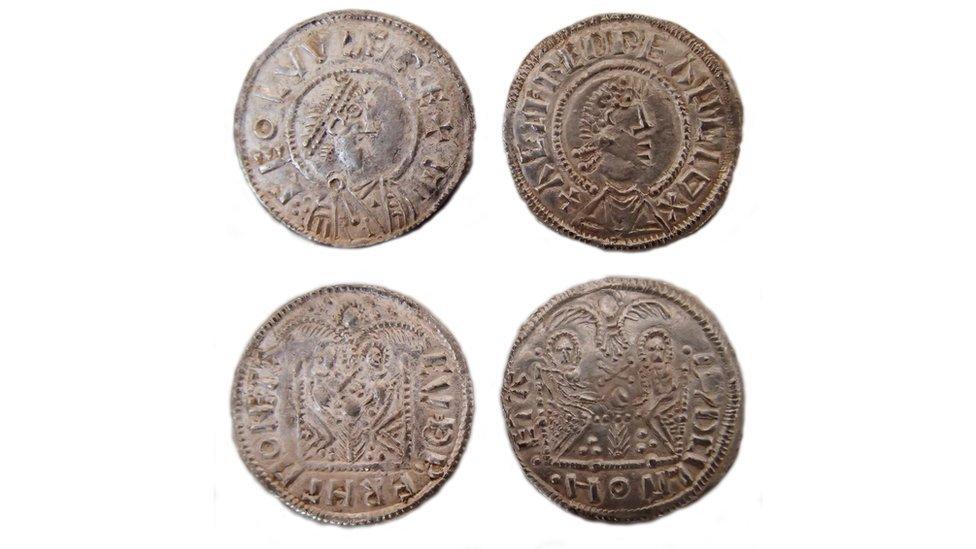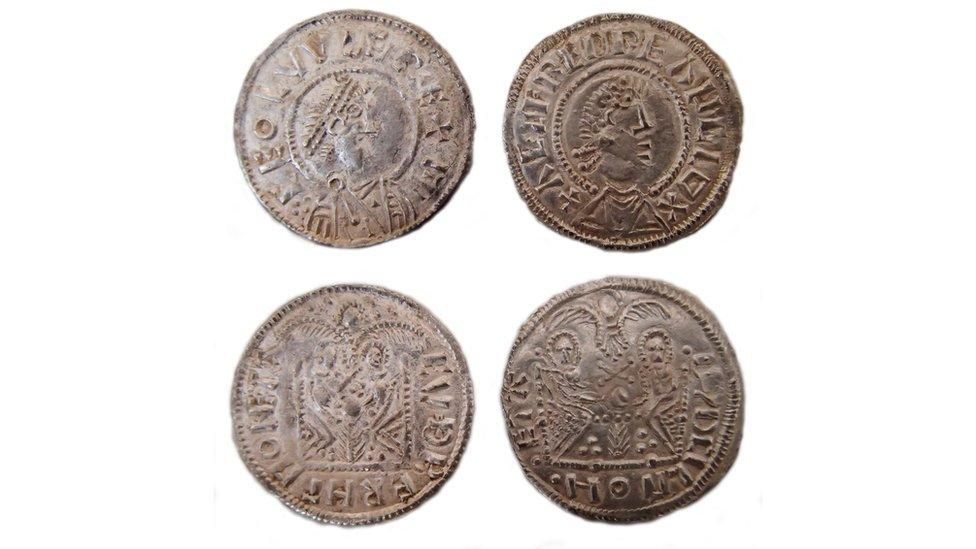Two men deny charges over £1m Viking hoard of coins and silver
- Published

Police previously said the recovered coins were similar to these four from the British Museum
Two men have denied charges relating to a Viking hoard of coins and silver worth almost £1m.
The finds were seized in raids on properties in County Durham and Lancashire in 2019.
Roger Pilling, 73, of Loveclough, Lancashire and Craig Best, 44, of Bishop Auckland, denied conspiring to convert criminal property between September 2018 and May 2019.
They will stand trial at Durham Crown Court on 20 June.
Mr Pilling also denied two charges of possessing criminal property, Anglo-Saxon coins and a silver ingot.
Mr Best also denied a charge of possessing criminal property, namely Anglo-Saxon coins.
Durham Police said previously that officers seized a large number of coins and a silver ingot in two raids.
The haul contained coins of Alfred the Great of Wessex and his less well-known contemporary Ceolwulf II of Mercia.
King Alfred inflicted a defeat on the Vikings in AD 878, and experts believe the coins belong to an undeclared hoard consistent with the location of the Viking army at that time.
When the coins were recovered, Dr Gareth Williams, curator of early medieval coins and Viking collections at the British Museum, described the collection as a "nationally important hoard" which could "add significantly" to the understanding of the political history of England.

Follow BBC North East & Cumbria on Twitter, external, Facebook, external and Instagram, external. Send your story ideas to northeastandcumbria@bbc.co.uk, external.
- Published19 August 2021
